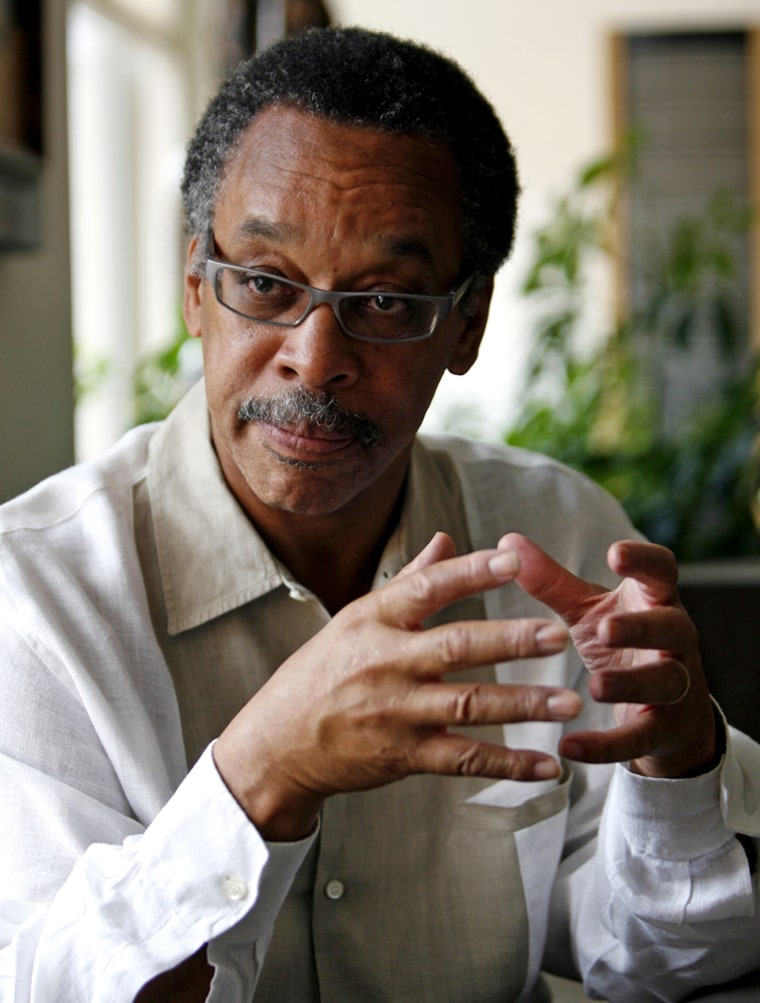NAACP President Bruce S. Gordon said Sunday he is leaving the civil rights organization after just 19 months at the helm, citing clashes with board members over management style and the organization’s mission as the reasons.
“I believe that any organization that’s going to be effective will only be effective if the board and the CEO are aligned and I don’t think we are aligned,” Gordon told The Associated Press. “This compromises the ability of the board to be as effective as it can be.”
Julian Bond, chairman of the board of the Baltimore-based National Association for the Advancement of Colored People, said Sunday that Gordon tried to quit just six weeks after taking the job in August 2005, but Bond convinced him to stay.
“There were occasions where it seemed just not to be a perfect fit,” Bond said. “But he had many, many great qualities, and he exhibited those qualities when he worked for us. I’m disappointed that it came to this.”
Gordon will give up his duties before month’s end, Gordon said in a phone interview from Los Angeles, where he attended the NAACP Image Awards Friday.
Dennis C. Hayes, the group’s general counsel, will serve as interim president, Bond said. Hayes filled the same role after Kweisi Mfume resigned the presidency in 2004 after nine years.
Gordon said that although the NAACP is an advocacy organization, his vision was to focus more on finding practical solutions to black America’s problems.
Social service work?
Gordon repeatedly made clear that he wanted the NAACP to do more social service work, said Rupert Richardson, a board member from Louisiana, but board members balked.
“I think he saw his job as remaking us to make us more effective, but his job was to do what the board and management wanted,” he said. “He was not a good fit for us, but he could have been.”
Bond said, “Put simply, we fight racial discrimination and social service groups fight the effects of racial discrimination. Service is wonderful and praiseworthy and fabulous, but many, many organizations do it. Only a couple do justice work, and we’re one of those few.”
Bond has acknowledged that, with 64 members, the NAACP’s board of directors is large and sometimes unwieldy. But he often says this allows a wide range of members’ voices to be heard.
Gordon, 61, was a surprise pick for the NAACP’s top post. When he took over, he had no track record in traditional civil rights circles. He had spent 35 years in the telecommunications industry and retired in 2003 from his post as president of the Retail Markets Group for Verizon Corp.
Critics said he wouldn’t be a good fit for the nearly 98-year-old organization.
However, he smoothed strained relations between the NAACP and the White House, meeting with President Bush three times in less than a year. He used his corporate ties to lend quick assistance to black New Orleans residents after Hurricane Katrina. And he hired a number of key national employees whose reputations inspired staff members.
Gordon improved the NAACP’s presence on the Internet and strengthened its ties to corporate America, Bond said Sunday.
Asked if Gordon leaves any other legacy, Bond said, “No.”
‘A cultural conflict’
Ronald Walters, a University of Maryland political science professor who has followed the NAACP closely for years, was surprised that Gordon is leaving, but said he had suspected that Gordon’s business background might make it tough to switch to civil rights work.
“I thought very early on that there might be a cultural conflict,” Walters said. “Somebody who came out of a corporate culture and was used to a set of agenda items and management style in one field might not have been able to make the adjustment totally to another field.”
Gordon’s departure throws the NAACP into disarray. Founded in 1909 by an interracial group who battled segregation and lynching, the group helped win some of the nation’s biggest civil rights victories.
But the nation’s racial progress has led some to question whether the NAACP remains relevant in today’s political climate. The group has about 300,000 dues-paying members, Bond said, plus 100,000 non-paying members. It has run a deficit in recent years.
Now, board members must find a new leader even as they prepare for centennial celebrations in 2009 that include a $100 million fundraising goal, Bond said.
Sunday, Gordon sounded weary as he boarded a flight home to New York City.
“I don’t view this as I’m right and they’re wrong. I view this as I see things one way and they see things a different way,” he said. “That misalignment between the CEO and the board is unhealthy.”
Asked about his plans after leaving the NAACP, Gordon said: “I’m going to catch my breath.”
“What I’ve clearly learned in my tenure here is that all is not well in black America, that’s for sure,” he said. “I believe I have a lot to offer. I’ve got to find a way to be engaged that optimizes what it is I bring to the table. My intention is not to disengage, but to find a different way.”
